Oh boy. Just watched Godzilla last night, and I have to admit… the movie left me pretty underwhelmed. There was a great opportunity to finally make an American Godzilla film that would really show off the appeal of the Toho movies, but I can’t say they got it here. The movie we got from Gareth Edwards seems much more interested in playing up the human drama, which is laughable, and cockteasing the audience to the point of frustration and annoyance.
So the movie starts and Bryan Cranston’s wife inevitably dies. Besides being a complete waste of Juliet Binoche, the whole thing felt incredibly heavy and overwrought. This is the first fifteen minutes of the movie, guys… I don’t think it’s really a good time to break out the water works just yet? I mean, the torture and angst on Cranston’s face is tough to take, and you’re just wondering why they’re leading off with something this draining and tragic right from the beginning. There’s something to be said for giving a movie some gravitas, but this went a little overboard. The audience isn’t really sunk into the movie world just yet and you’re already trying to yank vigorously on our heartstrings? It felt a bit too artificial and needy to my sensibilities. And the whole sequence itself looked rather silly, as Juliet Binoche is being chased down hallways by this cloud of radiation that seems to have a mind of its own. For me, it harkened back to Roland Emmerich’s The Day After Tomorrow, where you had Jake Gyllenhaal being pursued through a museum by this sinister mist of… freezing temperatures. Of course, I also started wondering exactly why a heavy duty containment door at a nuclear power plant would have a structurally weak transparent window to look through? That doesn’t really seem like a terribly good idea for providing maximum protection.
Now, Bryan Cranston is reliably great and gives a good energetic performance for… ya know, the first 30 minutes of the movie. He’s stomping around angry and confused and delivering delirious diatribes like someone’s taken off with all his meth money, and it feels legitimately serious. We’re supposed to care about what’s going on, and we really have no choice but to, because the camera’s all up in Cranston’s grill showing him gnashing his teeth angrily and spitting vitriol every which way but loose. So that’s fine and all, but his storyline doesn’t actually go anywhere. I mean, it bridges the gap between the 15 years and leads to the movie’s revelations about what actually happened, but his death is abrupt and seemingly senseless and leaves us with incredibly limp characters for the remainder of the film’s running time. We were all invested in him and his tortured guilt and now that’s all thrown away by the script. It feels incredibly lame and unfulfilling and seems to be a foreshadowing that this movie intends to tease the audience with hints of greatness that never fully resolve satisfactorily.
Aaron Taylor Johnson now becomes the main protagonist and uhhhh… I found his on screen presence somewhat lacking. He seems to spend most of the film staring blandly at the camera. I’m not saying that he goes and gives a terrible performance… he doesn’t out and out embarrass himself like Hayden Christensen did in the prequels, for example. But it’s a middle of the road, dialed down, workmanlike effort. There’s none of the energy and spontaneity and righteous anger of Cranston’s performance. Instead we’re treated to bland, lifeless scenes of him pointing his rifle at something in the distance, or comforting a small child, or… well, that’s pretty much it. Ken Watanabe and Sally Hawkins are likewise wasted. I have absolutely no idea why they even got Hawkins, an Oscar-nominated actress, for this role. She’s basically just playing the intern role. Hell, Kat Dennings gave us a better intern performance in those two Thor movies. At least she gave us some good laughs with her comedy relief. Hawkins just delivers exposition with a dour expression on her face.
Elizabeth Olsen does a fine job, though what she’s given isn’t much. As soon as she’s shuffled off into the shelter, we lose her until the end where she reunites with her family. I admit, I cringed mightily everytime someone spoke her name, but that’s just because her character has the same name as my ex. I fucking hate that bitch. But hey, that’s my own personal baggage. That’s not Olsen’s or the movie’s fault.
The movie suffers from generic ass generic scenes. These bugged me to no end. If you’re not going to show Godzilla, then you damn well better show us something interesting instead. Jaws accomplished that in spades. But this movie seemed determined to trot out tired ass generic scenes. We get the scene of Johnson tucking his little boy into bed, tenderly promising he’ll be there tomorrow. We get the scene of Johnson and his wife cuddling and being lovey dovey. We get the scene of the random dog barking at the oncoming tsunami, because dogs have a sixth sense about these sorts of things. We get the scene of this random little girl at the luau, looking cute and adorable. Then she’s whisked away by her dad and escapes, never to be seen again. Same with the cute little boy that Johnson suddenly befriends on the train. Then there’s a scene of all the kids on the school bus staring wide eyed out the window as it’s crossing the Golden Gate Bridge. Wait, didn’t this exact same scene happen in Superman 1? Just a torrent of utterly generic scenes that we’ve all gotten sick of and roll our eyes at. Or at least I do.
The movie goes and tries to inject some cheap sentiment about nuclear weapons and the tragedy of the atomic age, but never gives us a meaningful theme or throughline with it. Serisawa simply hands the Admiral his father’s broken watch from Hiroshima. Well, okay. That’s ummm… that’s really not enough, Mr. Scriptwriter. You need to actually do some work and tie it into the storyline somehow, instead of jamming it in between scenes randomly. Later on he gives a line about how “the arrogance of man is in believing he can control nature.” That’s not bad, that’s a pretty good line I suppose. But how does that tie back to Serisawa’s broken watch? One scene is about the destructiveness of atomic power unleashed by man, while the other is about man’s hubris in his relationship with mother nature. Do they connect together in any meaningful message or idea? I don’t believe so. It feels like some vague hand gesturing without a well thought-out purpose.
The military is going to be a big part of any Godzilla movie and this was no different. Yet they acted incredibly strangely in how they treated Godzilla. For example… they seem to be okay with sailing alongside Godzilla for a large chunk of the film. Where did this come from? Why aren’t they attacking Godzilla? Had they reached a peace accord with Big G? Some sort of treaty in place here? You see aircraft carriers and destroyers sailing literally 50 feet away from the giant monster. This is ridiculous to me. And mind you, this is right after his visit to Hawaii where he created a tsunami. So I’m not sure what they were thinking here. And at a minimum, it seems incredibly perilous to sail so close to something that could easily change direction and suddenly capsize you.
So I don’t know why they weren’t trying to kill Godzilla with torpedoes and other weapons. They’re just sailing alongside it like they’re escorting it. That seems silly to me, but maybe they’re just gonna listen to Dr. Serisawa and leave it alone as some sort of way to balance nature or something. I think he said something about Godzilla acting as a way to restore equilibrium. Let’s go with that. So if they’re just gonna be cool with Godzilla… then why do they suddenly fire on it as soon as it enters San Francisco Bay? What changed? And why would you park a dozen navy destroyers right in the path of a giant monster? Wouldn’t you know that it would collide with your fleet if you park them all about 40 feet from each other? This seems like the dumbest naval formation ever. And when you open fire… why would you do it from point blank range, so that your missiles all go haywire and strike the Golden Gate Bridge instead? I’m fine with the military attacking Godzilla, that’s after all what they’re supposed to do in Godzilla movies… I’m just not sure why they’re doing it in this idiotic, ill conceived manner.
The MUTOs are the primary antagonists in the story, since Godzilla is mainly treated as a hero of sorts. I thought they were okay. I mean, their whole schtick about consuming radiation and radioactive reactors and bombs… that’s fine with me, that’s how these Godzilla movies have always been. I can suspend my disbelief and go with it. But appearance-wise, I didn’t think they looked all that interesting. Their basic silhouette is quite smooth and angular and featureless, which makes the creatures look like a low polygon video game model at first glance. It’s not a big deal, but it did make me long for the traditional Toho adversaries like Rodan, Mothra, or King Ghidorah, which had colorful and varied features and skin characteristics. You can sense a thriving imagination at work with those fantastical creatures, while the MUTOs simply had a smooth, bland exterior with no real distinguishing traits aside from their burning red eyes.
The military’s plan makes no sense. I mean, I keep trying to think about it, and see if I remember any details… but no, it makes no sense. You’re going to arm the nuke right near San Francisco with a 2 hour timer, and then hope that you’ll be able to take it far away from the area while two MUTOs and Godzilla are all converging on it, trusting that none of them will get their hands on it before it blows? Why would that plan ever work? They already know they can’t stop the MUTOs with anything conventional. So wouldn’t it seem obvious that the MUTOs would simply snatch it up and keep it in the populated area? Maybe I missed something in the exposition. But this plan seemed real dumb right from the get go.
Why transport the nuclear missiles by train? Surely it’d have been faster and safer to transport them by plane or helicopter. In fact, that’s exactly what they do with the one lone missile when they find it in the rubble of the train wreck! They fly in and haul it off with a helicopter. So why use the easy to locate and incredibly vulnerable railway system? Especially when all you can protect it with is one or two squads of soldiers with rifles? What good will that do against a giant MUTO? And why did the MUTO gobble up one nuke, but not the other? It finds the train and there are two nukes, but it just decides to leave after one? Why not eat both? Well, I suspect the answer is that the script required the other one to survive so it could be used in the final setpiece of the movie, that’s why.
What is the point of pointing your assault rifle at a giant monster? This question was haunting me all throughout the movie. Aaron Taylor Johnson and his Hispanic soldier buddy on the railway bridge. Those soldiers on the roofs of the hotels in Hawaii. The special forces squad sent to locate the Akula submarine in the dense forest. They’re all decked out with gear and pointing their guns with purpose. What exactly are you hoping to accomplish with that M4A1 with the ACOG sight, Mr. Military Man? The monsters are all enormous and don’t really feel anything from missiles, rockets, and tank shells. Yet over and over again, we get to see these idiotic soldiers firing their rifles. Firing them from the boat with the nuke. That doesn’t work. Then the camera pans over and there’s a bunch more of em firing at the MUTO from the pier. That doesn’t work. The MUTO just bends down and eats the whole pier. Then Aaron Taylor Johnson gets on the boat and he pulls his pistol at the MUTO. Really? This is why it’s a mistake to focus on the little people… the little people don’t do jack shit. It’s just one scene after another of nonsense that feels tired and empty. There’s no entertainment value in watching soldiers with M16s firing at Godzilla or MUTOs.
Gareth Edwards must be the world’s biggest cocktease. That thought kept circling around my head throughout most of this movie. Now, the first time it happened, I decided to cut him some slack. When the camera reveals Godzilla for the first time in Hawaii and then cuts to an SD television feed of it battling the MUTO, I guess I let it slide, since he probably needed to save money on CGI. I figured that’s why we didn’t see more of the fight from a normal perspective. But then he keeps doing it, over and over and over again. We’d get to see Godzilla battling, and just as we’re getting into it… he cuts away to some utterly dull human drama. Give us a little taste, then cut away. Finally show us his atomic breath, then cut away. That shit gets frustrating after a while… Jesus H Christ. That’s just being an utterly huge cocktease to the audience, and I could feel the theater growing increasingly restless as the movie wore on.
Take the example of Godzilla showing up to battle the MUTO in San Francisco. Elizabeth Olsen sees the flying MUTO perched up on one side of her. Then Godzilla arrives in a swirl of smoke and dust on the other side of her. They charge forth into a climactic clash for all the ages just as she descends into the shelter and… then we cut away. No more, Gareth Edwards says. Well that right there is something that no true Godzilla movie would do. There is a fundamental lack of understanding about what a Godzilla movie should deliver and appreciating his splendor and awesome power. Edwards seems to revel in shoving him into the background instead. Plenty of shots where Godzilla and the MUTOS are simply background set dressing, while the camera follows Johnson’s squad in the foreground. In fact, the whole movie might as well be retitled “Godzilla in the Background.”
Now, I did think the smoke and debris swirling around the monster battles looked cool. That was always something which you never got with Toho’s old man in the rubber suit movies, simply because you can’t really create the realistic smoke and dust conditions when you’re using miniature cardboard buildings. But having witnessed 9/11, we know now that buildings crumbling and collapsing will indeed create tremendous plumes of smoke and dust. So it felt appropriately realistic and lifelike to see such conditions in a Godzilla movie. I thought there was some real artistry in how they employed these large CGI clouds with the creatures’ movements in melee combat. It’s an impressive sight, and gives us something we’ve truly never seen before in a Godzilla film.
Godzilla’s atomic breath is another element that I did enjoy in the movie. I was legitimately curious to see how they’d pull it off with the CGI that we have today in 2014, and it turned out looking just fine. Instead of a pure blue pillar of energy, Edwards seems to have elected for something that more resembles a wind, or a gust of blue. Which is definitely appropriate for an “atomic breath.” The spines also do light up, though not as much as in the older movies. Here, it’s a more subtle effect that doesn’t call as much attention to itself. The signature moment where Godzilla draws himself up and summons up the breath from deep within looked very realistic and animalistic at the same time. Kudos to the animators.
So the final act of the movie basically plays out like a Call of Duty mission. I’m serious, that’s exactly what I felt like they were showing us. You have the whole squad of soldiers HALOing into the city and navigating through the smashed rubble to their objective, which was the nuke. And always in the background is this tremendous scripted sequence of Godzilla fighting the MUTOs. And this focus on the Call of Duty mission really hurts my enjoyment of the film. Godzilla taking a backseat feels wrong. I don’t really care about these soldiers, they aren’t actual characters that we’re invested in like we are in a movie like Black Hawk Down. They’re all faceless nameless soldiers with the exception of Johnson. But the camera keeps cutting to them and keeping them in the foreground, while Godzilla’s battle, the thing we really want to see, keeps getting the background treatment. It’s incredibly disappointing and feels like someone’s missed the point of this movie.
It feels clear now that Edwards took a lot of influence from Cloverfield. Yet Cloverfield was a found footage movie, and the camera being strapped to one of the survivors necessitated the frequent cut aways from the monster. After all, they’re all trying to run away from the horrible creature. Godzilla is not a found footage movie, and the camera can be anywhere at any time. Yet Edwards insists on cutting away just when we’re getting into the monster action. What feels right and appropriate in one movie does not in another. And the camera cutting away time after time left me feeling exasperated, because I was simply stuck watching faceless soldiers in a plotline that we’d already seen in plenty of other movies. The ticking-bomb-about-to-explode-in-a-city is something that’s been retread over and over again: Batman Begins, Spider-Man 2, The Dark Knight Rises, The Avengers, etc. I certainly don’t ever need to see it again in a movie in this lifetime.
Now after the final battle… the nuke goes off and everyone’s safe. We’re left with retrieving people from the rubble of collapsed skyscrapers. And the news comes on and they proclaim… “Godzilla, Savior of the City?” Wait, what? We just had a battle that destroyed more of San Francisco than Zod accomplished in Metropolis, and yet Godzilla’s the savior of the city? How does that work? I mean, yes, if you were privy to the entire military situation and figured out that he stopped the MUTOs and that allowed the nuke to get away safely and the nuke detonated far away from the city… yes, I suppose that you might be able to see it that way. But I don’t really think the news reporters in San Francisco would be in on that information? As far as they’re concerned, Godzilla was just equally as responsible for the devastation in the city as those MUTOs. And considering how many people died in the fallout, I hardly think they’d be wondering about him being a savior. The whole thing just feels like a lame attempt to copy the ending of The Avengers. And while I thought that tv montage in The Avengers was pretty cheesy and hokey, at least it felt appropriate and earned there. Here, it feels ridiculous. And yes, I know that Godzilla has been portrayed as a protector of the earth in earlier Toho movies. However, I would respond by saying that A) I never cared much for those movies, and B) it really does steer away from the aspect of Godzilla that I prefer, which is as a force of nature. A force of nature is not a savior of any sort, he merely does what he wishes and leaves a trail of destruction in his wake. So to see him referred to as a savior left a bad taste in my mouth, which isn’t what you want for a closing scene.
At the end of the day, I would have to say that Pacific Rim is the better movie of the two. Now, I’m not saying that Pacific Rim is an amazing movie, and it certainly had problems that weigh it down: Too much screen time devoted to the wacky scientists and Ron Perlman, and poor acting from the two main leads. Those problems do hold the movie back… and yet when I walked out of the movie theater, I was rather pleased with the overall experience and wanted to return to that movie universe. And that is not really something I can say for Gareth Edward’s Godzilla. The stunning waste on display is a real shame and I don’t have high hopes for a sequel with him back at the helm.
5/10
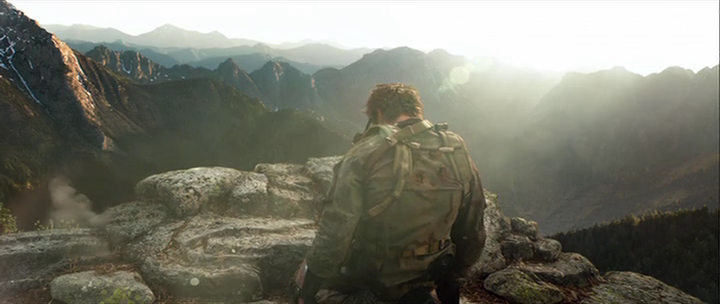

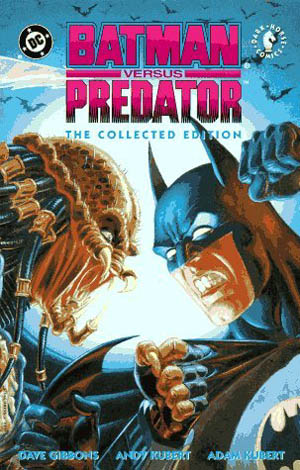
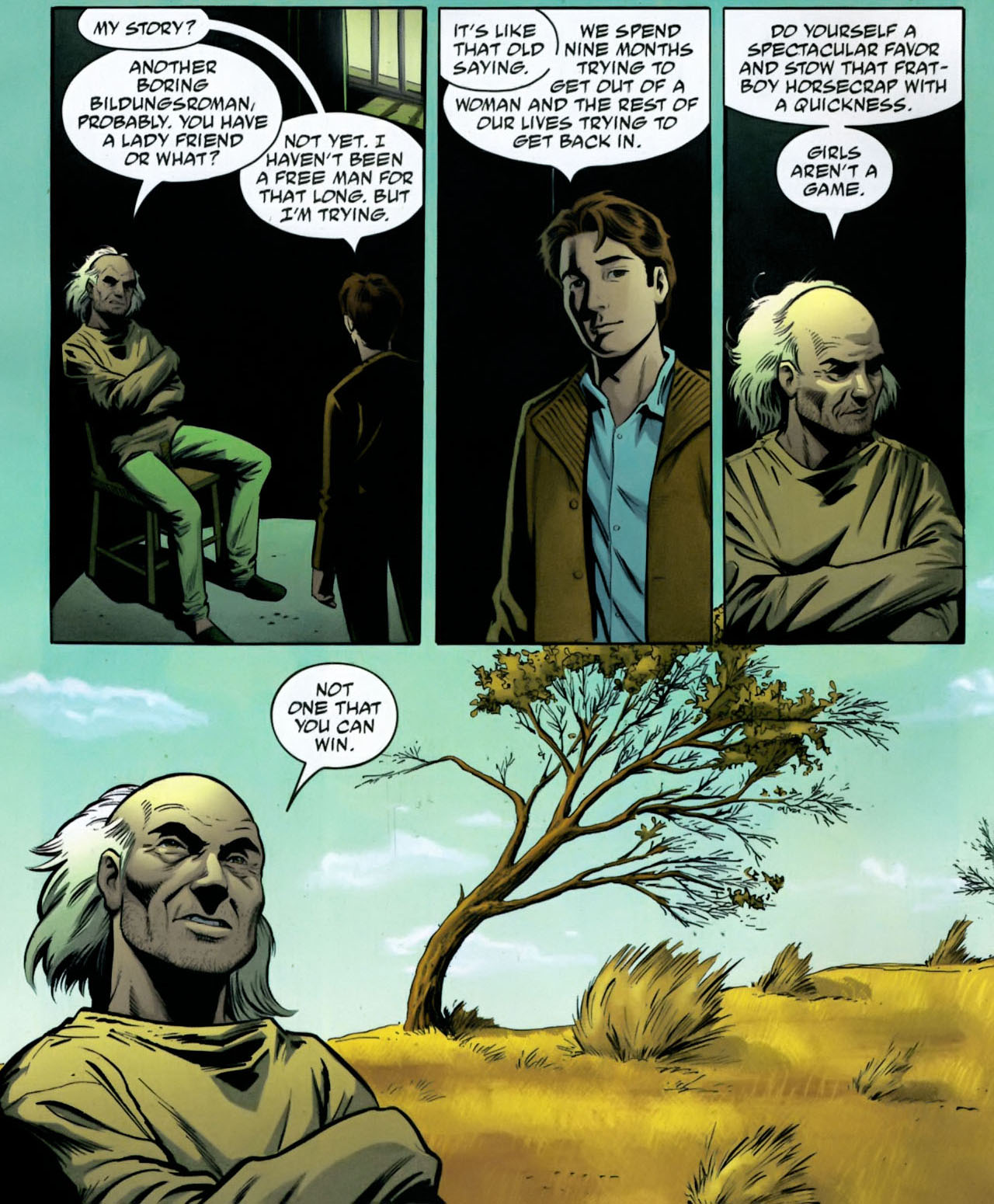
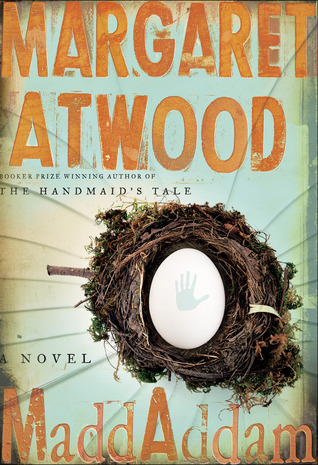
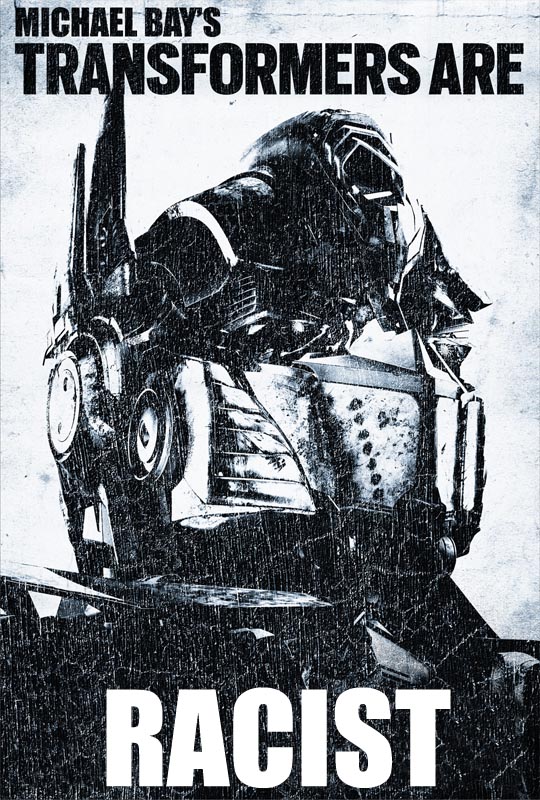
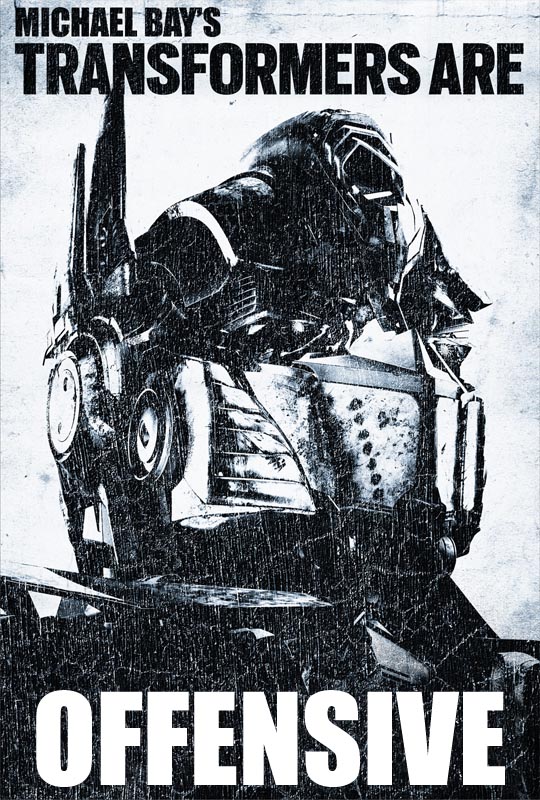
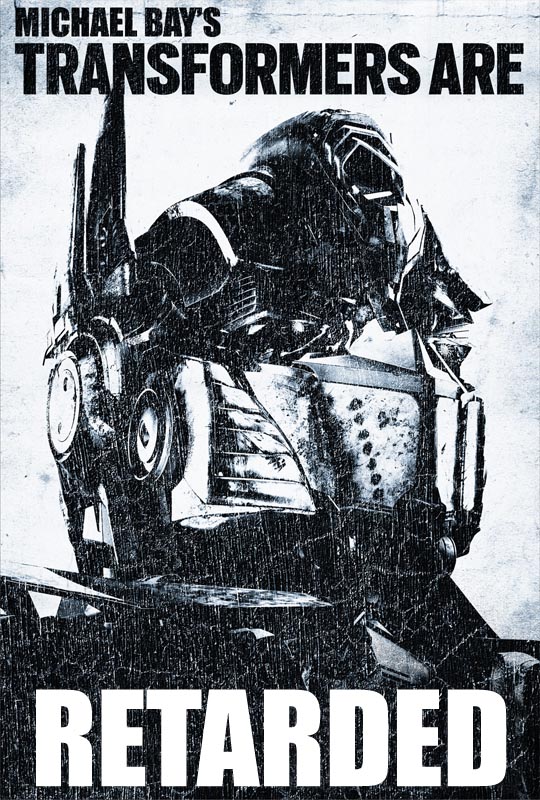
Log in to comment